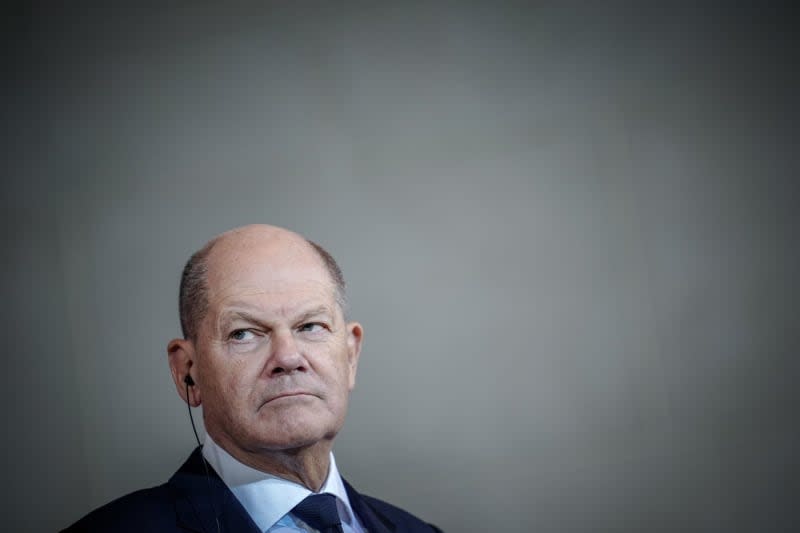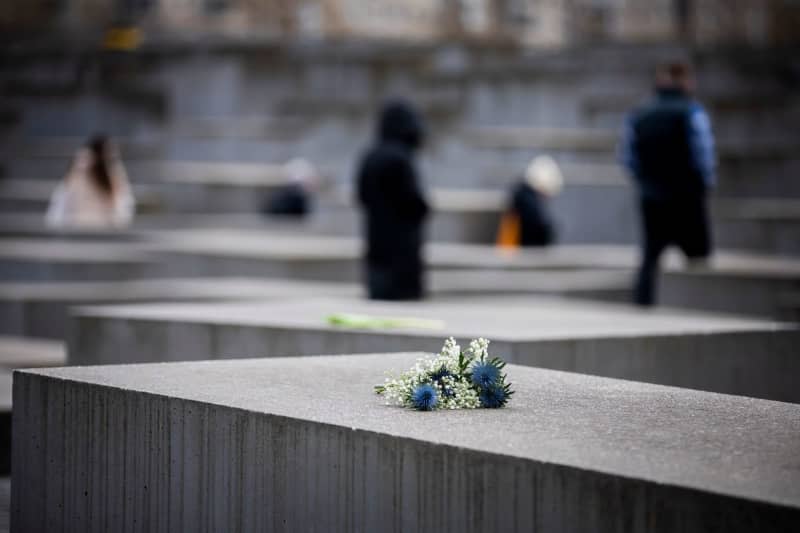German chancellor calls for determined fight against anti-Semitism

- Oops!Something went wrong.Please try again later.
German Chancellor Olaf Scholz has called for a determined fight against anti-Semitism and racism, on the occasion of International Holocaust Remembrance Day as flags flew at half-mast across the country.
"'Never again' is every day," he said in his weekly video published on Saturday.
"January 27 calls out to us: Stay visible! Stay audible! Against anti-Semitism, against racism, against misanthropy - and for our democracy."
On January 27, 1945, Soviet troops liberated the survivors of the German extermination camp Auschwitz, the site of which is located in modern-day Oświęcim, Poland.
The Nazis had murdered more than 1 million people in the camp, most of them Jews. The date has been commemorated as Holocaust Memorial Day in Germany since 1996.
In October 2005, the United Nations proclaimed January 27 as International Holocaust Remembrance Day.
In the video, Scholz emphasized that today's democracy is based on the central commitment "Never again."
"Never again marginalization and disenfranchisement, never again racial ideology and dehumanization, never again dictatorship."
Ensuring this is the central task of the state, he said. "That is why we are fighting every form of anti-Semitism, terrorist propaganda and misanthropy."
The German chancellor once again welcomed the judgement of the Federal Constitutional Court, which this week withdrew funding from the former National Democratic Party (NPD) which now operates under the name Die Heimat, or "The Homeland."
On January 23, the extremist far-right party was banned from receiving any state funding for the next six years.
Scholz also welcomed the numerous large-scale demonstrations across Germany against right-wing extremism in recent days and weeks.
"Our country is on its feet right now. Millions of citizens are taking to the streets," he said. It is cohesion among democrats that makes democracy strong, he added.
"Never again" demands everyone's vigilance, Scholz said. "Our democracy is not God-given. It is man-made. It is strong when we support it. And it needs us when it is under attack."
Neo-Nazi networks and the spread of right-wing populism are not something that should simply be accepted, he said.
Flags on German government buildings were to be flown at half-mast on Saturday. Interior Minister Nancy Faeser ordered the gesture of mourning to mark International Holocaust Remembrance Day, her ministry announced on X, formerly Twitter.
Numerous events were scheduled throughout Germany to commemorate the victims of Nazism.
Faeser was due to give a speech at the Ravensbrück Memorial in Fürstenberg, 75 kilometres north of Berlin.
German Finance Minister Christian Lindner evoked the sinister past of his authority's own offices while warning against any repeat of the Holocaust.
"It was the idea of dehumanization that paved the way for the Holocaust in Nazi Germany. What happened back then must never be repeated," Lindner was quoted as saying on Saturday in a Finance Ministry post on X, formerly Twitter.
The post featured a photo of Lindner in a conference room in central Berlin.
"In this room in today's Federal Ministry of Finance, preparations were made in 1938 for what later went down in the history books as the Wannsee Conference: the coordination of the mass murder of European Jews," the caption reads.
The ministry has been based in the Detlev Rohwedder House on the capital's Wilhelmstraße major thoroughfare since 1999. The imposing edifice was built during the Nazi era in 1935-36 as the headquarters of the Aviation Ministry headed by Hermann Göring.
In Auschwitz itself, there was an exhibition of portraits mostly drawn by prisoners.
The event on Saturday will show that the drawings made in the camp symbolize the individual human being, a statement by the Auschwitz museum in Poland said.
Piotr Cywinski, director of the museum, said that too many people today associate Auschwitz primarily with its grounds - barbed wire, barracks and watchtowers.
"It is an empty space filled with relics of camp architecture. Meanwhile, the drama and significance of Auschwitz is not about the relics, but about humans," he said.
Around 20 survivors will also take part in the memorial service on the site of the former camp.
The Central Council of Jews in Germany meanwhile published a pamphlet ahead of remembrance services which warned against equating the Holocaust with other genocides.



